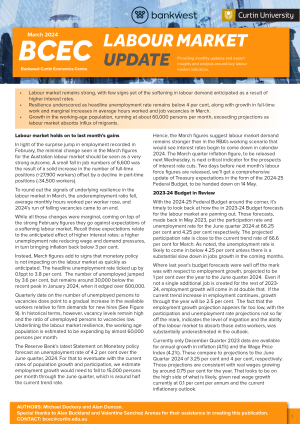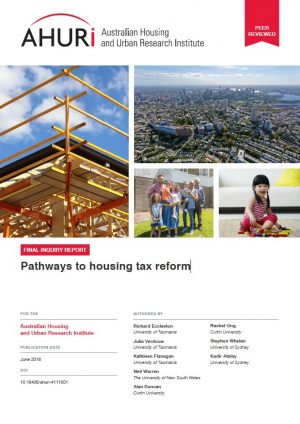Pathways to housing tax reform
Despite widespread agreement that housing tax reform would lead to better housing outcomes and improved economic efficiency, the politics and ideology around housing tax policy remain a deterrent for change.
This report, funded by the Australian Housing and Urban Research Institute (AHURI), uses innovative economic modelling to reveal a practical way to overcome these hurdles, and lays out a comprehensive pathway to housing tax reform which will deliver long-term dividends while minimising short-term impacts on budgets, households and housing markets.
Key findings include:
- gradually reducing the generosity of capital gains tax discounts (from 50% to 30%) and negative gearing provisions over a decade would have little impact on average ‘mum and dad’ investors
- a cap on housing-related tax deductions should be phased in over a 10-year period, with an initial $20,000 cap to be reduced by approximately $1,500 per annum (the precise amount would depend on market conditions) until it reached $5,000
- if supported by appropriate administrative reforms, it is possible to gradually phase out stamp duties and replace them with more efficient and equitable annual property value taxes (i.e. land tax)
- over time, the value of the family home should be more accurately reflected in the pension asset test
- a nationally coordinated approach to housing tax reform including federal, state and local government would deliver better housing outcomes and significant economic dividends.





